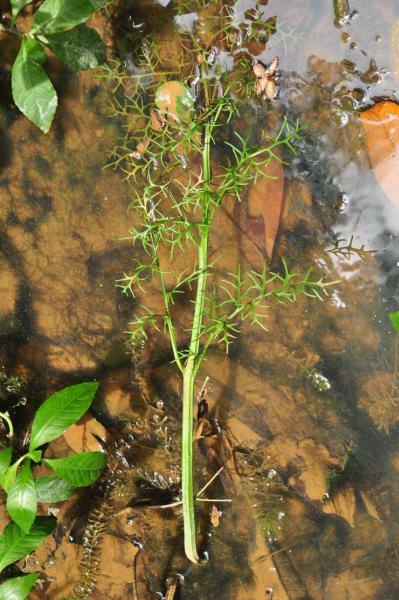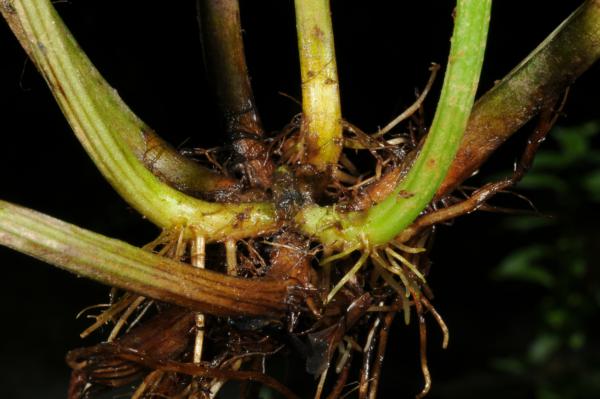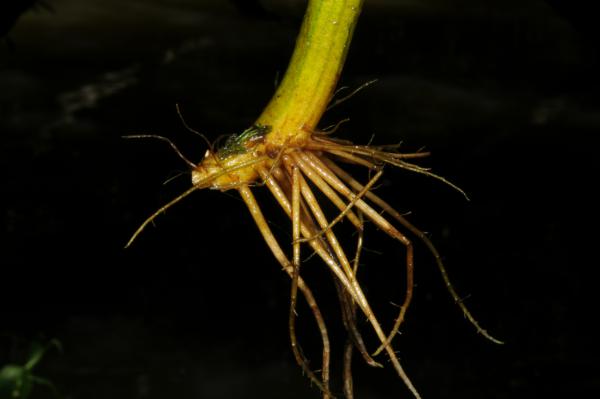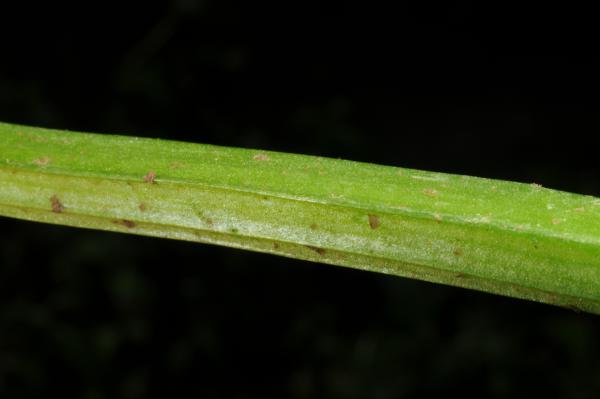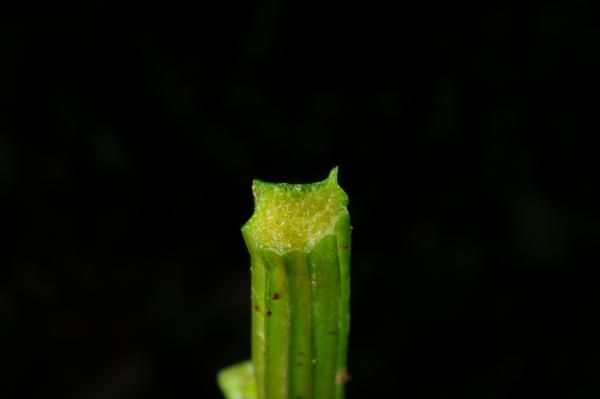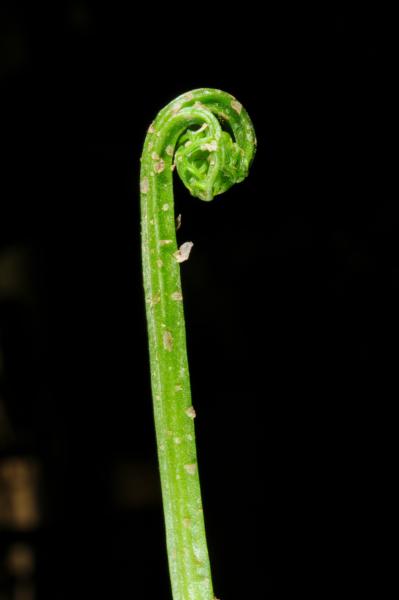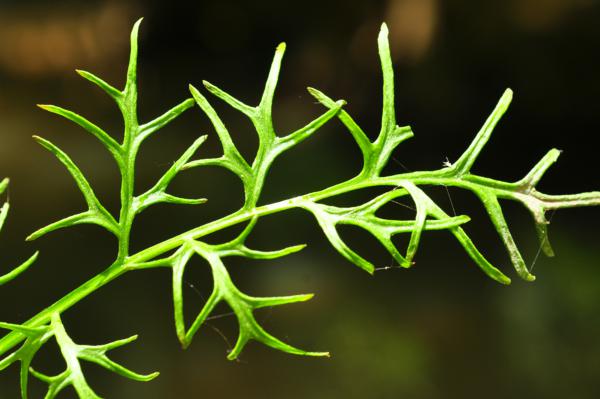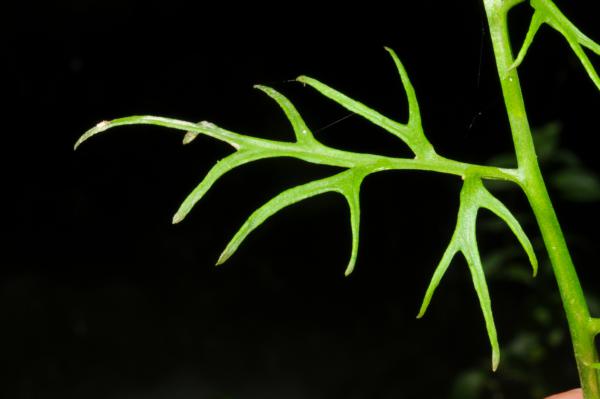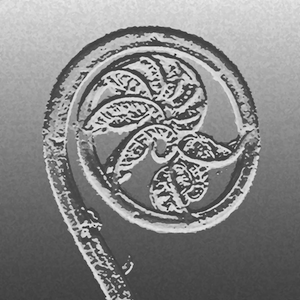
Ceratopteris thalictroides (L.) Brongn.
Family
Pteridaceae, subfamily Parkerioideae
Nomenclature
Ceratopteris thalictroides (L.) Brongn., Bull. Sci. Soc. Philom. Paris 1821: 186. 1822; Bedd., Handb. Ferns Brit. India: 123, f. 63. 1883; Christ, Bot. Tidsskr. 24: 113. 1901; C.Chr., Bot. Tidsskr. 32: 249. 1916; Tardieu & C.Chr., Fl. Indo-Chine 7(2): 194, f. 23, 2–3. 1940; Holttum, Rev. Fl. Malaya ed. 1, 2: 578. 1955 [‘1954’]; Holttum, Dansk Bot. Ark. 20: 32. 1961; Holttum, Dansk Bot. Ark. 23: 243. 1965; Seidenf., Nat. Hist. Bull. Siam Soc. 19: 87. 1958; Tagawa & K.Iwats., SouthE. Asian Stud. 3(3): 88. 1965; Tagawa & K.Iwats., SouthE. Asian Stud. 5: 107. 1967; Tagawa & K.Iwats., Fl. Thailand 3: 184, f. 14.1. 1985; Boonkerd & Pollawatn, Pterid. Thailand: 104, 125. 2000; Newman et al., Checkl. Vasc. Pl. Lao PDR: 31. 2007. – Acrostichum thalictroides L., Sp. Pl. 1070. 1753.
Acrostichum saliquosum L., Sp. Pl. 2: 1070. 1753. – Ceratopteris saliquosa (L.) Copel., Philipp. J. Sci. 56: 107. 1935
Description
Terrestrial in wet soil or in flooded areas, sometimes a free floating aquatic. Rhizome short, erect, bearing a tuft of fronds, scaly; scales fuscous, thin, entire, ovate and cordate at base. Stipes fleshy, green, up to 40 cm long. Frond dimorphic: sterile lamina bipinnatifid to tripinnatifid, subdeltoid to oblong, usually shorter than the fertile ones, 10–15 cm but in larger ones up to 35 cm long; rachis and pinna-rachis like the upper part of stipe, green; ultimate lobes linear, moderately acute at apex, glabrous; fertile lamina longer, up to 50 by 30 cm, more copiously divided; pinnules divided into linear lobes; ultimate lobes up to 5 cm long and about 2 mm broad. Sporangia on veins except on raised costae of ultimate segments, solitary , large with short stalks.
Distribution in Thailand
NORTHERN: Mae Hong Son, Chiang Mai, Phitsanulok; EASTERN: Buri Ram; SOUTH-WESTERN: Kanchanaburi, Prachuap Khiri Khan; CENTRAL: Pathum Thani, Bangkok; SOUTH-EASTERN: Chon Buri, Chanthaburi, Trat; PENINSULAR: Surat Thani, Phatthalung, Satun.
Distribution in Laos
Champasak, Khammouane.
Distribution in Cambodia
Kandal, Kompong Cham, Ratanakiri.
Wider Distribution
Warmer regions throughout the world.
Ecology
Aquatic or subaquatic in paddy fields usually in open areas, common at low to medium altitudes throughout Thailand. This species is becoming rarer in the areas where herbicides are used.
IUCN Conservation Assessment
Least Concern (LC) as listed on the IUCN Red List at http://www.iucnredlist.org/apps/redlist/details/168862/0.
Voucher specimens - Thailand
Middleton et al. 5466, Krabi, Thanbok Khoranee National Park (E).
Voucher specimens - Laos
Thebaud s.n., Champasak, Se Pian (P).
Voucher specimens - Cambodia
David et al. CL820, Ratanakiri, Along Taveng Road (P).
Habit
Rhizome
Roots
Stipe
Cross section through stipe
Crozier
Rachis and pinnae
Pinna
Site hosted by the Royal Botanic Garden Edinburgh. Content managed by Stuart Lindsay, Gardens by the Bay, Singapore and David Middleton, Singapore Botanic Gardens. Last updated 24 January 2012
